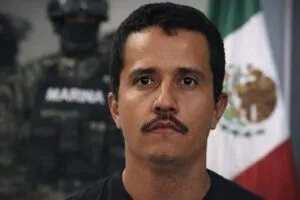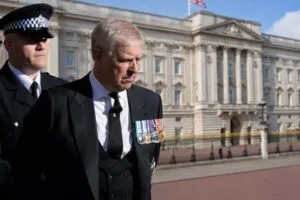I’ve spent quite a bit of time researching equal rights campaigns around the country. Different projects and movements continually pop up, seeking to shape how laws are drafted and interpreted.
Some are helpful, while others pose major risks to core civil rights. My goal is to shine a spotlight on ongoing efforts to secure fairness for all, along with personal reflections gained through meeting activists, reviewing policy proposals, and hearing stories from everyday people affected by legislative maneuvers.
There’s so much to cover, and I’d rather move directly into the heart of the conversation.
Table of Contents
ToggleProject Blitz – A Religious Approach to Law

In my investigations, I came across a coordinated movement often referred to as Project Blitz. Launched around 2018, it puts forward model bills encouraging legislators to tie policies closely to a specific religious worldview.
Advocates within that movement hope to reinforce certain Christian doctrines within the framework of government. Some might see that as preserving religious tradition, yet critics warn that it threatens the fundamental principle of church-state separation.
I’ve spoken with many people who worry that attempts like Project Blitz could create barriers for people who follow minority faiths or no faith at all. A Christian-centric public policy might lead to exclusion in public institutions and public services.
Organizations like Americans United focus on counteracting those efforts and maintaining laws that protect the free exercise of religion for everyone.
I align with those who champion fairness for diverse faiths and belief systems. Society has always been strongest, in my view, when no single creed takes precedence over others.
Key Takeaways from Project Blitz
- Model bills presented to legislators seek to integrate a Christian framework into state laws.
- Critics warn of dangers to religious diversity and the separation of church and state.
- Opposition groups encourage vigilance and legal action when necessary.
Project 2025’s Agenda & Potential Threats to Civil Rights
Over the past year, I noticed the emergence of another strategic blueprint, often identified as Project 2025. By reading statements from advocacy groups, it seems that this playbook challenges established protections and proposes ways to limit civil rights laws that have been in place for decades.
Dismantling those protections could open the door to discrimination in public venues. The Center for American Progress has gone on record highlighting the possible damage.
If the Project 2025 plan gains widespread legislative traction, public spaces could become less inclusive, and historically marginalized communities might suffer.
My personal standpoint is straightforward: civil rights legislation has gradually allowed more of us to feel recognized and respected, so attempts to roll that back ring alarm bells for me. I’d rather see our lawmakers build on progress, not undo it.
Consequences of the Project 2025 Agenda
- Potential erosion of established civil rights protections in housing, employment, and public facilities.
- Increased social and economic marginalization for minority groups.
- Heightened need for awareness campaigns and active participation in legislative processes.
The Equal Rights Amendment
Drafted in 1923 by suffragists Alice Paul and Crystal Eastman, the ERA stands as an iconic proposal to guarantee sex-based equality through a constitutional amendment. My admiration for those early activists runs deep.
Their forward-looking vision remains remarkable, even if they faced formidable roadblocks. Decade after decade, new waves of supporters have pushed for the ERA’s ratification. Legal battles and political complexities have delayed that goal.
Conversations continue regarding avenues to get it officially incorporated into the Constitution. If it finally becomes part of the supreme law of the land, proponents say it would offer a powerful legal standard for challenging sex-based discrimination.
Opponents, on the other hand, claim it might have disruptive effects on existing laws. From my viewpoint, it’s tough to deny that a clear constitutional guarantee could provide a firm basis for safeguarding women’s rights.
In times when legislation can change or get overturned, placing explicit equality wording into the Constitution appears to be the most reliable way to ensure lasting protection.
Why the ERA Matters
- Establishes a direct constitutional guarantee of equality on the basis of sex.
- Serves as a clear legal foundation for protecting women’s rights.
- Offers a backstop against sudden legislative rollbacks that impact reproductive healthcare, workplace rights, and more.
The Equality Act

Along with efforts to secure women’s rights, many advocates campaign for legislation known as the Equality Act. It would broaden existing civil rights laws to protect people from discrimination based on sexual orientation and gender identity.
I’ve met LGBTQ+ individuals who shared personal stories about harassment, housing discrimination, or employment obstacles, all because of who they are. Federal law doesn’t always offer uniform protections in those scenarios.
My sense is that a patchwork system leaves many at risk. Backers of the Equality Act say it would unify protections nationwide and remove doubts about the availability of legal recourse.
Critics have voiced concerns tied to religious liberties, but supporters respond that religious freedom can still thrive alongside laws preventing unfair treatment.
In my opinion, guaranteeing fair treatment for those who have historically been marginalized ought to be a central priority. Public policy, at its best, helps all of us feel safe and free.
Notable Aspects of the Equality Act
- Extends non-discrimination rules to include sexual orientation and gender identity.
- Targets areas like housing, employment, and public accommodations.
- Promotes consistency in how laws are applied throughout the nation.
Advocacy Playbooks for Racial Justice and Immigrant Rights

Equal rights discussions aren’t only about religion or gender. Race, ethnicity, and immigration status also intersect with daily life in profound ways.
Several organizations have created step-by-step resources that outline how to promote laws beneficial to vulnerable groups. Those guides often recommend:
- Researching statistics and policy proposals.
- Launching public awareness campaigns.
- Coordinating voter registration drives.
- Lobbying elected officials to support specific measures.
I’ve had the privilege of browsing multiple playbooks designed to address racial justice and immigrant issues. They highlight the importance of building coalitions, sharing real-life experiences from affected communities, and engaging with policymakers in local, state, and federal arenas.
In my reporting, I’ve seen that grassroots movements can spark change when they’re well-organized. That’s why I hold so much respect for citizens who take the initiative to create these strategic roadmaps.
Impact of Advocacy Playbooks
- Provide practical steps for influencing public discourse.
- Encourage direct engagement with policymakers and voters.
- Facilitate unity across different segments of the population.
Challenges to Women’s Rights

Despite progress, women’s rights continue to be a touch-and-go territory. In multiple instances, battles over reproductive healthcare and gender-based violence highlight the absence of explicit constitutional language guaranteeing equality.
As courts and legislatures shift, so do the benchmarks for how women’s rights are defined. I’ve interviewed women who’ve seen courts change their perspectives on workplace harassment or access to contraception based on who’s in power.
A stable foundation that protects rights beyond the whims of politics seems essential. The ERA could provide that. I can’t help but feel the clock is ticking for stronger safeguards that don’t pivot with every election cycle.
Factors Affecting Women’s Rights
- Evolving legal interpretations of existing statutes.
- Divergent federal and state approaches to reproductive healthcare.
- Challenges in addressing gender-based violence and discrimination.
LGBTQ+ Rights (Gains and Roadblocks)
@pinknews What will happen to LGBTQ+ rights if the new US President Donald Trump enacts Project 2025? Project 2025, assuming it still needs to be explained at this point, is an infamous proposed manifesto for the ultra-conservative faction of the Republican Party and, many believe, Donald Trump’s second term. And with many LGBTQ+ Americans waking up on 6 November to the bleak and shocking reality of a second Trump presidency, it feels like a particularly good time to unpick what the document could signify for queer peoples’ rights in the US over the next four years. #project2025 #donaldtrump #uselection #lgbtqrights ♬ Minimal for news / news suspense(1169746) – Hiraoka Kotaro
Marriage equality has been the most visible sign of progress for the LGBTQ+ community, but additional problems persist, especially for transgender people facing severe pushback on matters such as healthcare, public accommodations, and overall acceptance.
Some locales have passed protective laws, yet others have enacted measures curbing rights. I’ve witnessed the fallout from debates around bathroom bills and restrictions on trans-related healthcare.
Some have argued that those measures safeguard children, while others see them as harmful to families and mental well-being. For me, it’s heartbreaking to hear trans individuals say they feel unwelcome in their own communities.
Societies function better when people aren’t singled out by identity or orientation, and I believe that principle is worth standing up for.
Ongoing Concerns for LGBTQ+ Communities
- Inconsistent regulations across states regarding housing and employment.
- Conflicts with religious exemption clauses that sometimes limit protections.
- Pressing need for greater public education and acceptance.
My Personal Reflections as an Observer and Activist
While gathering data and interviewing people affected by legislative action, I’ve often felt torn between mere reporting and wanting to step in as an advocate.
The power of stories from individuals facing discrimination has encouraged me to join protests, sign petitions, and write op-eds. Society thrives on fresh ideas, especially when old systems continue to fail marginalized groups.
I’ve realized that true progress doesn’t hinge only on sweeping federal legislation. Local efforts can be just as critical, with municipal regulations and community activism filling gaps left by national gridlock.
In many discussions, one theme continues to stand out: genuine equality demands that folks from all backgrounds find common ground. That means bridging religious, racial, and political divides in pursuit of fairness.
While that seems challenging in a time of heated partisanship, hope can come from small groups of neighbors working together, from unlikely alliances in state legislatures, and from everyday citizens compelled to act.
Three Vital Organizations Pushing for Change
The freedom playbook often depends on organizations dedicated to safeguarding civil rights. I’d like to spotlight a few that I’ve encountered time and again in my research.
Equality Illinois
- Largest LGBTQ+ civil rights group in the Midwest.
- Promotes advocacy efforts, public education, and community engagement.
- Strives to foster inclusive policies for LGBTQ+ individuals across Illinois.
Human Rights Campaign (HRC)
- The biggest national LGBTQ+ advocacy organization in the United States.
- Focuses on ending discrimination and promoting equality in law and culture.
- Organizes large-scale campaigns on behalf of the LGBTQ+ community.
Lambda Legal
- Specializes in impact litigation and public policy work on behalf of LGBTQ+ people and those living with HIV.
- Offers legal resources and representation in landmark cases.
- Aims to transform laws and policies through courtroom victories.
A Blueprint for Equality
Moving forward, I’d propose several guiding ideas for anyone committed to forging a more equitable society. Some might already be familiar strategies, but it’s surprising how many folks I meet who aren’t sure where to start:
- Stay Informed: Keep track of what’s happening at local, state, and national levels. Reading policy briefs, watching town halls, and staying connected on social media can bring clarity and focus.
- Engage with Community Groups: Often, grassroots groups can offer a tangible impact on daily life. Participation in community events or volunteering for local nonprofits broadens your sense of shared purpose.
- Use Voting Power: Elections have consequences. Knowing each candidate’s stance on equality can help communities choose leaders who champion inclusion.
- Contact Lawmakers: Regular communication with senators, representatives, and city officials reminds them that their decisions affect real people. A short phone call or personalized email can leave a bigger impression than many think.
- Support Legal Challenges: Civil rights lawsuits serve as a critical avenue to block discriminatory laws. Donations to legal advocacy organizations or just sharing information on social media can help.
- Promote Dialogue: Some folks resist progress out of fear or misinformation. Productive conversations, led with empathy and facts, might move them to re-examine initial assumptions.
No single blueprint guarantees success, but consistent effort in multiple areas tends to build momentum. Considering the intensity of campaigns like Project Blitz or Project 2025, it’s clear that progressive voices also need robust plans.
Final Thoughts
It’s not easy to wrap up a discussion about equal rights in a neat bow. The interplay of laws, social movements, and changing cultural values forms a constantly shifting puzzle.
Yet the underlying thread is our shared desire for fairness, compassion, and respect. My time as a research journalist and activist has shown me the undeniable importance of teamwork and vigilance.
Activists, legal experts, and concerned neighbors collaborate daily to hold back any slide toward discrimination. Even when setbacks happen, that collective drive for justice remains.
It’s an ongoing story, and I’m optimistic that the better angels of our nature can guide us toward a world in which every person has the freedom to live with dignity and peace.
Related Posts:
- Safest Countries in the World in 2025 - GPI…
- 25 Most Dangerous Cities in US - Updated Statistics for 2026
- Capital Cities in Europe: Top Destinations For You…
- What You Need To Know About the Equality Act in 2025
- Top 11 Civil Rights Organisations Promoting Equality
- America's Murder Capitals: A 2026 Ranking of the…








